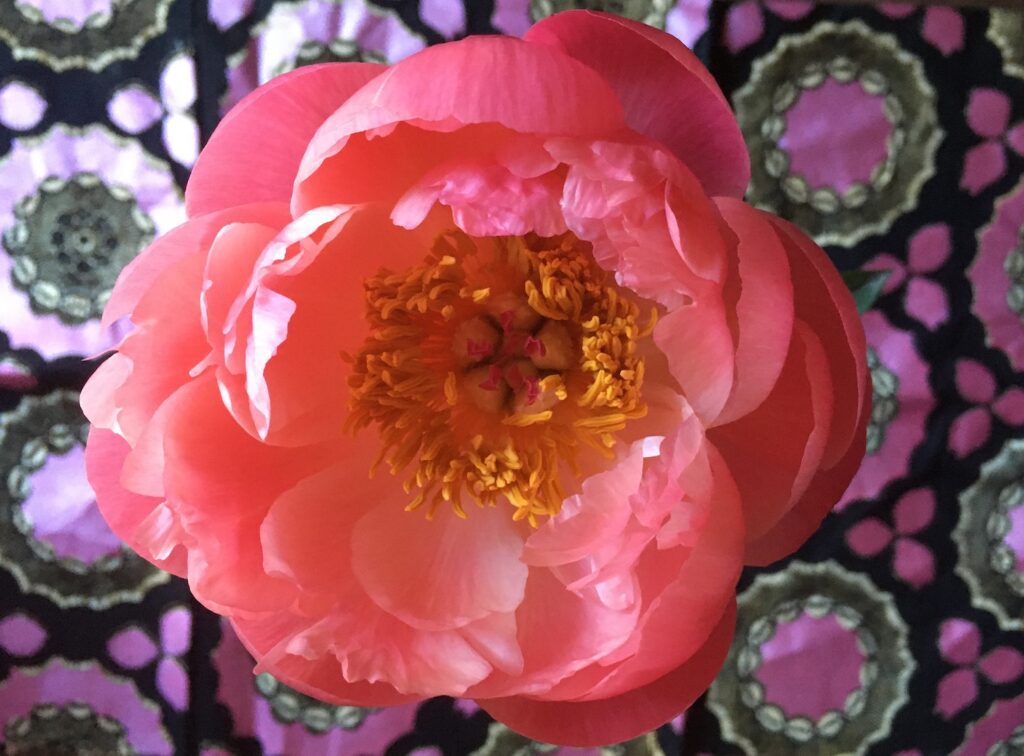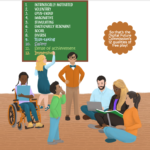In the Mindful Digital Life post I wrote on December 12, 2020, I introduced the Healthy Minds app developed by The Center for Healthy Minds at the University of Wisconsin-Madison. At the time I wrote that, I hadn’t started to use it yet. But I’d set an intention to use it daily throughout the end of 2020 and into January to support my own well-being. I also could see that the HM app could be a very useful digital support for parents, caregivers, educators, and young people—I wanted to go through it myself to review it for Mindful Digital Life. In 2012, I’d participated in a Compassion Cultivation Training program with the Center for Compassion and Altruism Research and Education (CCARE) and had experienced first hand how transformative training in qualities like compassion can be.
Cortland Dahl is the lead author on the research that led to the Healthy Minds framework, and he is one of two narrators for the practices and “podcast-like” sessions in the app. Cortland writes:

There are qualities of a healthy mind that many people don’t know are even trainable. We don’t think of them as skills. Many of us have thought we are hardwired to be like this or that, but the reality is these qualities are much more trainable and malleable than we think. It’s a very empowering view of the human mind—we can learn to be in the driver’s seat of our own mind.
Over the last several years, I’ve worked with dozens of mindfulness apps. Before apps were a thing, I explored various trainings via in-person sessions and CDs (e.g., Jon Kabat-Zinn’s Mindfulness-based Stress Reduction or MBSR, Anna Wise’s High Performance Mind). So I am not a novice to reviewing such programs. I think the team has done an extraordinary job creating this app. One of the features I appreciate the most is the flexibility and choice they have built into it. You can choose anything from a 5- to a 30-minute practice session (I’ve settled into 20 minute sessions for this first round). You can choose from two different narrators—Cortland Dahl and Daniela Labra Cardero (I’ve chosen to stick with Cortland for this round). You can choose “sitting” or “active” narrative mode which means that I’ll occasionally work through a practice session while I’m washing dishes.
Mostly, I use the app at the end of the day. Since the November election, I’ve been reading news A LOT on my phone, and because the app is on my phone, working with the practice sessions at night is helping me change that pattern. I’m a little over half way through my first run through. I say “my first run through” because I know I will continue to use this powerful tool once I complete the sessions.
Given the extraordinary stresses of the moment, I would recommend experimenting with this tool to support yourself, your family, your students. If you have tweens and/or teens, you might try doing a family challenge, possibly even setting aside 25 minutes at the end of the day to listen together. The app alternates themed practice sessions with 6 minute podcast-style sessions. Typically, Cortland introduces the topic and then “interviews” Richie Davidson, director of the Center for Healthy Minds, in a short clip. If you do listen together, I would recommend keeping the practice session on the shorter side. Start with 15 minutes and see if it’s comfortable to expand to 20. Then follow the practice session up with the podcast. The HM app calls these podcasts LEARN. The keyword I offer today is “experiment.” And if you do download the app, let me know. I’d love to hear how you’re using it and what you experience.

RESOURCES
The Yale Center for Emotional Intelligence has created a free online course for pre-K through 12th grade educators called “Managing Emotions in Times of Uncertainty & Stress.” It’s open to anyone. I registered. I’m a fan of Marc Brackett’s work. He is the “instructor.” The course (on Coursera) begins 1/17/21 but you can start anytime.
Book Watch: Stay tuned for Rachel Ignotovsky’s new book, What’s Inside a Flower and Other Questions About Science & Nature
And while you’re waiting for Rachel’s book (tell your library), watch this lovely botanical animation, Story of Flowers (4 minutes).
Take good care. Keep your spirits up. Connect.


